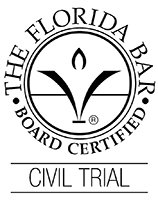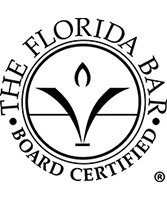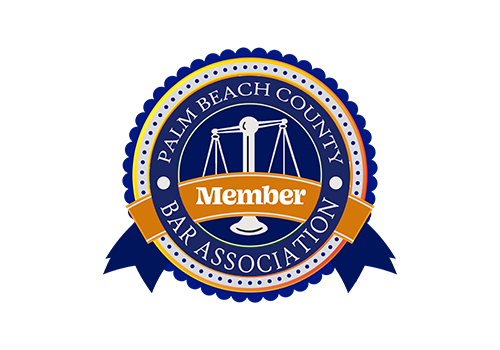What To Do When a Doctor Misdiagnoses You

Experiencing a medical issue can impact your ability to do your daily activities and interfere with your enjoyment of life. Receiving a diagnosis can provide relief and the sense of stability that comes with knowing you’re on the road to recovery with the corresponding treatment. Unfortunately, some doctors do not provide the correct diagnosis. This can be a form of medical malpractice and can bring significant pain and loss.
What Is Misdiagnosis?
Misdiagnosis occurs when a medical professional incorrectly or inaccurately diagnoses a patient’s condition. There are various root causes for misdiagnosis, including:
- Common Symptoms – Many medical problems can cause patients to exhibit symptoms that overlap with multiple possible conditions. The possibility of several causes for a patient’s symptoms can complicate the diagnostic process, but providers must work to discover the most probable cause for a patient’s symptoms.
- Ineffective Communication – Some patients have trouble explaining the extent of their symptoms, pain, suffering, and experience, leaving their providers to fill in the blanks as best they can. A lack of complete information and misinterpreting symptoms can lead to a misdiagnosis.
- Medical Oversight – Medical professionals have a duty to treat and diagnose, and when they miss or overlook critical elements of a patient’s medical history, it can cause severe medical errors. Oversight can include diagnostic testing errors, failure to diagnose, or failure to consider alternative diagnoses. In extreme circumstances, misdiagnosing or failing to diagnose a patient can result in wrongful death.
What Are the Signs of Misdiagnosis?
Signs of a potential misdiagnosis vary from condition to condition, and it may be difficult to pinpoint the exact giveaway that a misdiagnosis occurred.
Indicators of misdiagnosis include:
- You Aren’t Improving – If you’ve started taking medication or received another course of treatment and aren’t feeling better or experiencing relief from your symptoms, you might not have an accurate diagnosis.
- Your Providers Disagree – If you received differing opinions about your condition from separate healthcare providers, it could indicate that your current diagnosis is inaccurate.
- You’re Experiencing Worse or Additional Symptoms – If your symptoms have worsened or you’re experiencing new symptoms after receiving treatment for a diagnosis, you might have received an inaccurate diagnosis for your medical condition.
How Common Is Misdiagnosis?
Unfortunately, misdiagnosis is a widespread medical issue. According to research published by the medical journal BMJ, roughly 12 million Americans, or about 1 in 20 patients, are misdiagnosed annually.
The effects of misdiagnosis are wide-ranging and can have potentially harmful consequences for the patient’s well-being, like:
- Proper treatment delays
- Delayed diagnosis
- Worsening condition
- Financial impact
- Emotional distress
What To Do If You Suspect Misdiagnosis
If you suspect your healthcare provider has misdiagnosed you, there are a few things you can do:
- Get a Second Opinion – Seeing another healthcare provider for your symptoms allows you to get another perspective that can help you determine whether a medical professional misdiagnosed you. It can also further inform you of your treatment options.
- Maintain Your Medical Records – Gathering your medical records can assist other healthcare providers when reviewing your diagnosis. They will need all available information about your medical history to give you an accurate assessment. Be sure to include test results, surgery details, and outpatient care you might have received.
- Ask for Additional Testing – Further testing can include or exclude specific diagnoses, clarify your existing diagnosis, and inform your future treatment plans. Additionally, you can ask for a review of your previous test results. This re-examination can determine whether your care provider correctly interpreted the results.
How Do I Seek a Second Opinion?
The process of seeking a second opinion may seem overwhelming initially, but it can provide clarity. According to a Mayo Clinic study, only 12 percent of people who sought a second opinion had their diagnosis confirmed. The rest of the patients received an adjusted diagnosis or a new one.
You can start pursuing a second opinion by:
- Asking for Recommendations – You might want to see a specialist for a second opinion rather than a primary care provider. Specialists can provide specific insight into their field. Ask your primary care provider for a recommendation or search for an in-network specialist for your insurance company.
- Collecting Your Records – Your second-opinion provider will need as much information as possible about your medical history to give a comprehensive and thorough evaluation. Be sure to provide copies of test results, imaging studies, and ongoing treatment information for the consulting doctor to review.
- Scheduling and Attending Your Appointment – You’ll want to get the most out of your appointment by choosing a time slot to have uninterrupted time with the doctor to ask questions and discuss their analysis. Be clear that the focus of the appointment is to obtain a second opinion during the scheduling process.
- Communicating Clearly – You should be prepared to let the consulting doctor know the extent of your symptoms, medical history, and concerns to get the most out of your appointment. It can be helpful to bring a list of questions or a note to remember critical details to your appointment.
Can I Sue My Doctor for Misdiagnosis?
Filing a medical malpractice lawsuit against a doctor can be complicated, involving several steps and often needing professional legal help.
According to Florida’s medical malpractice statutes, you must prove that:
- A doctor-patient relationship exists between you and your provider.
- Your doctor’s actions breached the applicable standard of care.
- Their negligent actions caused you harm.
The applicable standard of care is the level of skill, care, and treatment that a reasonably prudent, similarly trained professional would have provided in the same circumstances.
Proving medical negligence is complex and often requires extensive documentation, evidence, and a deeper understanding of medicine and its legal consequences. It isn’t as simple as suing a doctor after receiving a second opinion.
You have two years from the date the incident occurred or the date you discovered, or should have found, the medical error to file a claim.
There are specific exceptions to this timeline, including:
- If fraud or concealment occurred to hide the original malpractice incident further
- If the patient is/was a minor
Additionally, regardless of when you discover the medical error, you cannot file a lawsuit more than four years after the date of the injury.
Can I Seek Compensation for Misdiagnosis?
 You can pursue compensation to cover the following:
You can pursue compensation to cover the following:
- Medical bills, including emergency room costs
- Corrective medical care expenses
- Lost wages
- Disability
- Physical or occupational therapy
Contact an Experienced Florida Medical Malpractice Lawyer
An experienced Florida medical malpractice attorney can help determine whether you have a medical malpractice claim due to misdiagnosis.
At Schuler, Weisser, Zoeller, Overbeck & Baxter P.A., we believe those who harm others should be held responsible. We understand the frustration of dealing with stressful medical issues and want to assist you in alleviating your burden, not adding to it. You won’t pay a dime unless we win.
Call Schuler, Weisser, Zoeller, Overbeck & Baxter P.A. at 561.689.8180 today to consult with a medical malpractice attorney for free.










